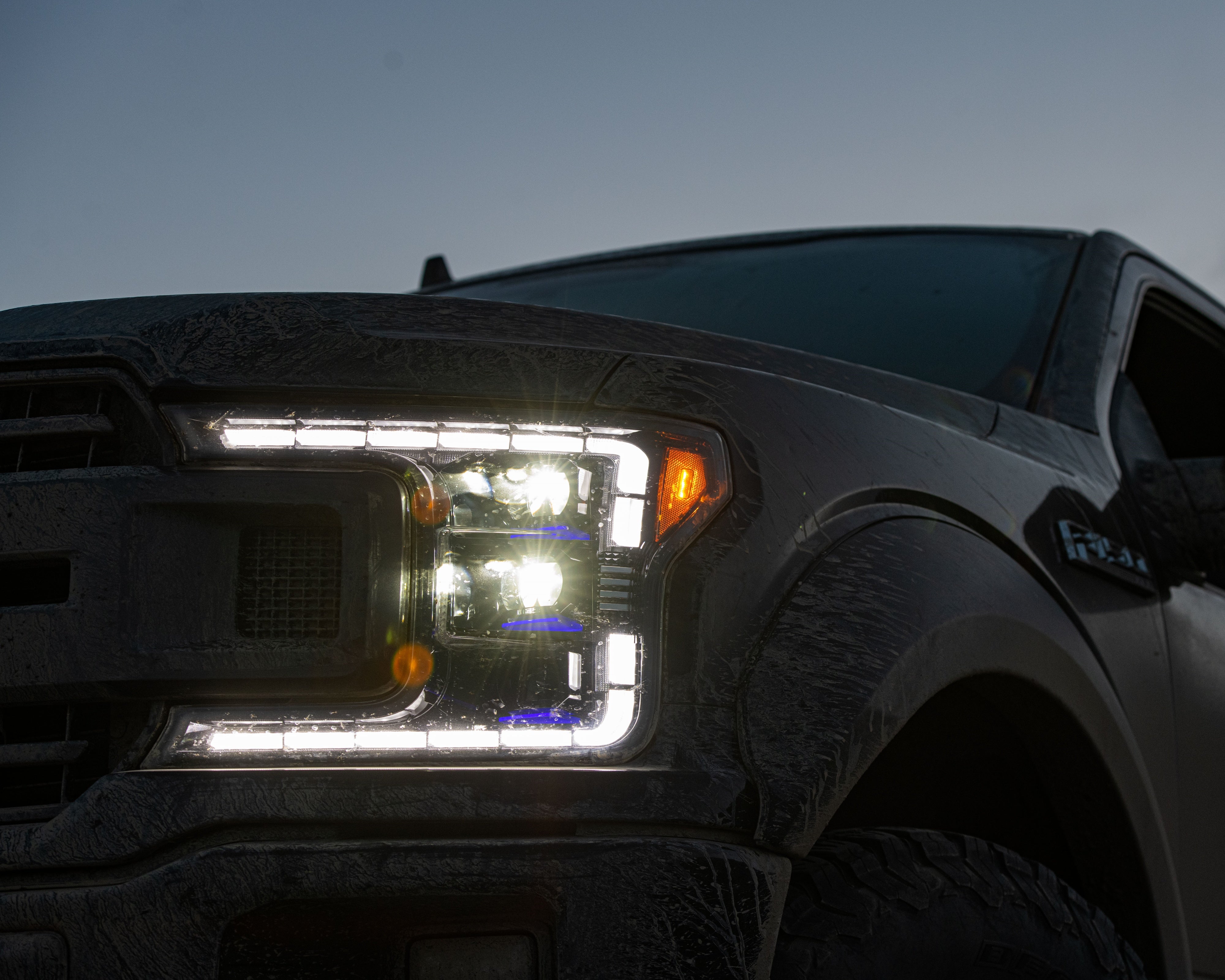
LED Headlight Beam Patterns: Brightness, Color & Throw Guide
When upgrading to LED headlights, it’s not just about choosing the brightest option. Understanding beam patterns, color temperatures, brightness, and throw distance is essential to getting the best performance for your vehicle and driving conditions. In this guide, we’ll break down everything you need to know to make an informed decision—and help you choose the best setup for style, visibility, and safety.
What Is a Beam Pattern?
A beam pattern refers to how the light is distributed when projected from your headlight housing. It determines how well you can see ahead, how wide your peripheral lighting is, and whether or not you’ll blind oncoming drivers.
Common Beam Types:
- Low Beam (Dipped Beam): A focused beam for normal nighttime driving. It projects light downward and to the sides to prevent glare.
- High Beam: A stronger, straighter beam for long-distance visibility. Best used on open roads without traffic.
- Projector Beam: Uses a lens to focus the light into a sharp, clean cutoff line.
- Reflector Beam: Uses mirrors to reflect the light outward. Tends to have more scatter than projectors.
Tip: The beam pattern depends not just on the bulb, but also on the headlight housing design. That's why Lesem full LED headlight assemblies are built with performance-focused optics and cutoff lines to ensure road-legal performance.
Understanding Color Temperature
Color temperature is measured in Kelvin (K) and defines the color tone of your headlights—from warm yellow to cool blue-white.
| Color Temp (Kelvin) | Appearance | Best For |
|---|---|---|
| 3000K – 4300K | Warm yellow/white | Fog, rain, snow, low visibility |
| 5000K – 6000K | Pure white | Daily driving, modern look |
| 6500K+ | Cool white/blue | Show vehicles, aggressive style |
Most Lesem LED full LED headlights have a color temperature in the 5500K–6000K range, which is optimal for road clarity and a modern look. Please refer to specific product details or contact support for exact specifications.
Brightness: Lumens & Real-World Output
LED brightness is usually rated in lumens, but don’t be fooled by inflated specs. A quality headlight like those from LesemLED optimizes brightness without glare or hot spots.
- Standard halogen bulb: ~1,000 lumens
- Typical aftermarket LED: ~2,500–6,000 lumens
- Lesem LED assemblies: Tuned for maximum usable light with beam shaping
Why it matters: Brightness alone isn’t everything. What matters is how that brightness is projected and controlled—which is why complete LED assemblies with projector optics outperform cheap bulb replacements.
What Is Throw Distance?
Throw distance is how far ahead the beam reaches. It’s essential for highway driving and spotting obstacles at high speeds.
- High throw helps with faster reaction times.
- Wide throw improves visibility at intersections and curves.
Lesem LED headlights are engineered for a balanced throw pattern, giving you both distance and spread without blinding others on the road.
How to Choose the Right LED Headlight for You
When selecting your LED headlights, consider the following:
- Driving Conditions: Foggy, rural, or city roads all require different beam focuses.
- Vehicle Fitment: Full LED assemblies like ours are plug-and-play for popular models (like 2018–2020 Ford F-150).
- Style Preference: Want that clean, white modern look? Go for 5500K–6000K.
- Build Quality: Look for sealed housings, built-in cooling, and DOT compliance.
Recommended Products
If you're looking for a serious upgrade, check out our bestsellers:
- For 2018–2020 Ford F-150 Full LED Performance Headlights
- For 2009-2018 Dodge Ram 1500 2500 3500 Full LED Performance Headlights [for dual or quad beam style]
- Full LED Headlights Collection
These are engineered with projector optics, optimized beam patterns, and stunning modern styling.
Final Thoughts
Understanding beam patterns, color temps, brightness, and throw distance ensures you’re not just upgrading your headlights—but upgrading your entire driving experience.
Whether you drive in dark backroads or commute through the city, LesemLED has the right full LED solution for you.

Leave a comment
Your email address will not be published.